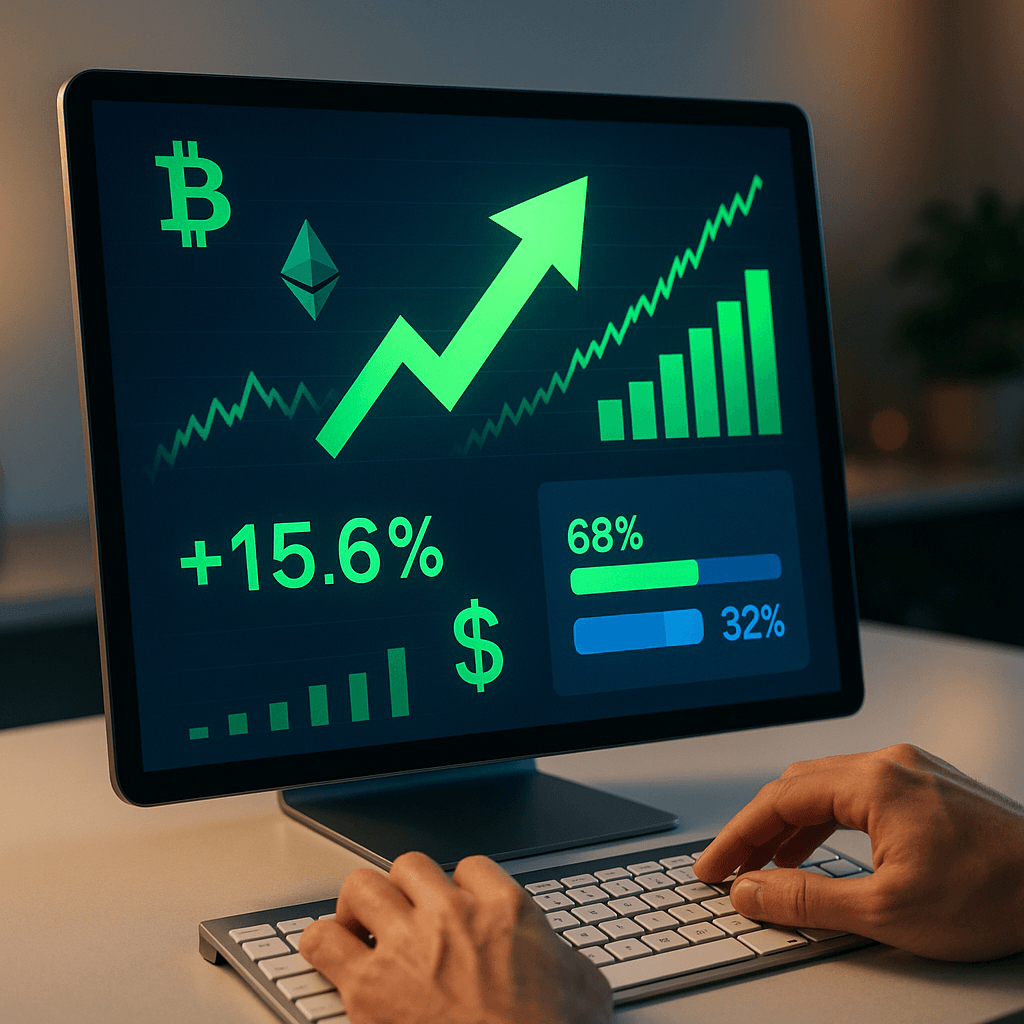Robinhood just delivered a knockout quarter that has Wall Street talking. The trading platform doubled its revenue year-over-year while beating earnings expectations by 15%, driven largely by its aggressive push into crypto and prediction markets. With net income jumping from $150 million to $556 million, this isn't just growth - it's a fundamental shift in how retail investors are trading.
Robinhood just proved that betting on crypto and prediction markets was the right call. The commission-free trading pioneer smashed third-quarter expectations Wednesday evening, posting revenue of $1.27 billion against Wall Street's $1.19 billion forecast while earnings per share hit 61 cents versus the expected 53 cents.
The numbers tell a story of dramatic transformation. Revenue doubled from the same quarter last year, while net income exploded from $150 million to $556 million - a 271% jump that left analysts scrambling to update their models. CFO Jason Warnick didn't mince words about what's driving this surge: "Q3 was another strong quarter of profitable growth, and we continued to diversify our business, adding two more business lines - Prediction Markets and Bitstamp - that are generating approximately $100 million or more in annualized revenues," he said in the earnings release.
But there's a wrinkle in this success story. Transaction-based revenue, the bread and butter metric that tracks actual trading activity, came in at $730 million - below StreetAccount's $739 million estimate. This suggests that while Robinhood is making more money per trade and diversifying its revenue streams, the raw volume of trading isn't growing as fast as some hoped.
The real story here is Robinhood's evolution from a simple stock trading app into a full-scale financial services company. The company has been throwing serious money at luring customers away from traditional players like Fidelity and Charles Schwab with aggressive deposit matching offers. It's working - assets under management have been climbing steadily, boosted by the TradePMR acquisition that brought institutional clients into the fold.
Meanwhile, Coinbase is watching its retail trading dominance get chipped away as Robinhood pushes harder into crypto. The prediction markets launch, tied to the recent election cycle, has proven especially lucrative. Users can now bet on everything from political outcomes to sports events, generating revenue streams that traditional brokers simply don't have.
The timing couldn't be better for CEO Vlad Tenev. Robinhood's stock has been one of the standout performers among large-cap tech names this year, with the company successfully shedding its meme-stock reputation for something more substantial. The platform that once faced congressional hearings over GameStop trading restrictions is now positioning itself as a serious competitor to Wall Street's old guard.












